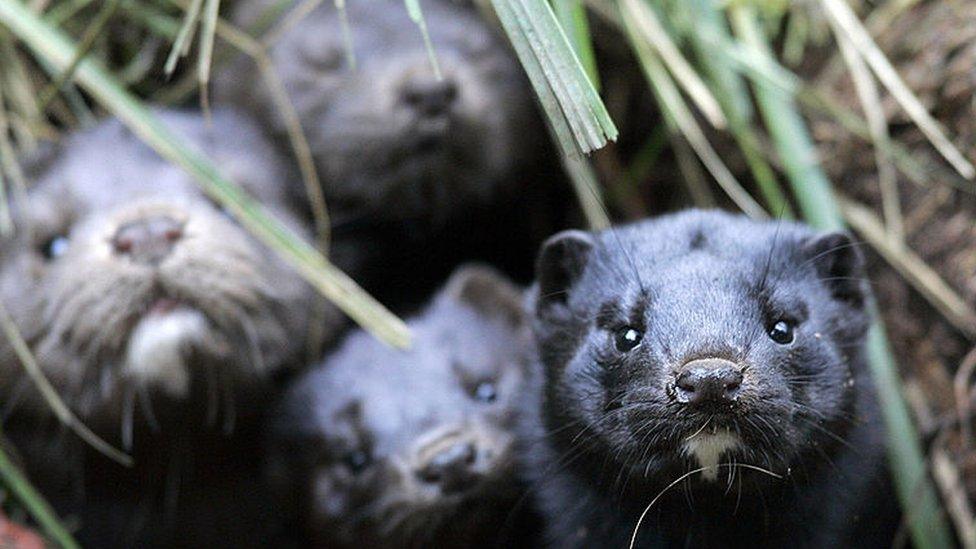Charity gets £491k to save Nottinghamshire water voles from the brink
- Published
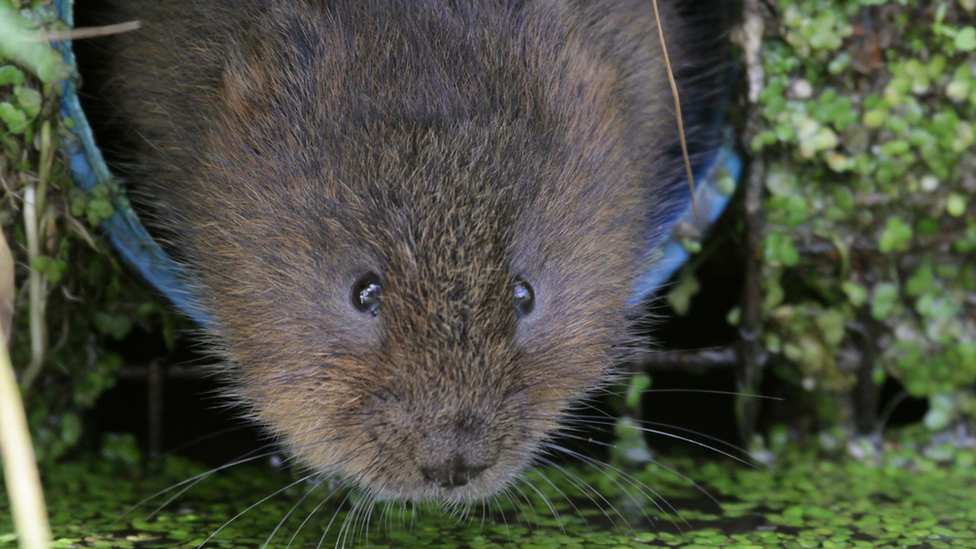
New habitats are to be created near rivers, streams and ditches
Conservationists have been given £491,740 to try to stem the decline of Nottinghamshire's water vole population.
Experts have warned the rare but much-loved rodents are disappearing from the countryside because of habitat loss and the growing threat of predators.
The Nottinghamshire Wildlife Trust plans to create new ponds and banks by waterways to help the creatures.
It also aims to trap and dispatch American mink who feed on them.
Recent surveys have shown water voles are now almost absent from sites where they were found a decade ago, the trust said.
The money has come from Natural England's Species Recovery Programme Capital Grant Scheme and will pay for work between now and March 2025.
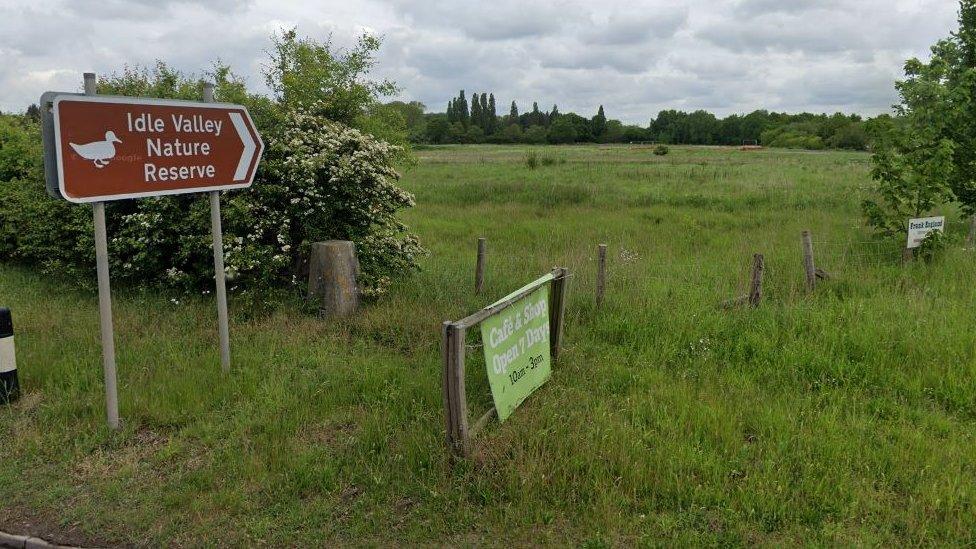
Water Voles bred in captivity are to be released into the Idle Valley Nature reserve
The grant will fund mink control measures across 900 hectares (2,224 acres) of wetlands and along more than 31 miles (50km) of rivers in the county.
Much of the work will take place along the River Idle, near Retford, in the Sherwood area and around Erewash on the Derbyshire border.
The trust said a key step would be releasing captive-bred water voles at the Idle Valley Nature Reserve.
The trust's head of nature recovery, Janice Bradley, said: "The evidence is stark and clear. Without urgent action, the future for water voles in our county is bleak and we risk losing this much-loved species forever from Nottinghamshire.
"Given the historic regional importance of Nottinghamshire's water vole population and the fact that many key river catchments are shared with neighbouring counties, the continued decline of water voles in Nottinghamshire will also impact on other counties.
"We're excited that we can now focus on bringing water voles back from the brink."
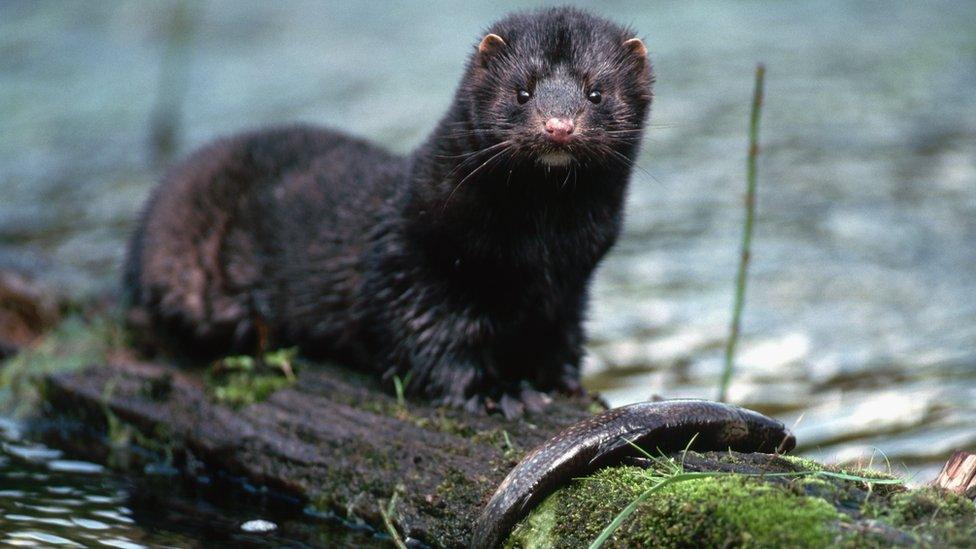
American mink are now widespread in both Northern Ireland and the Republic

Follow BBC East Midlands on Facebook, external, on X, external, or on Instagram, external. Send your story ideas to eastmidsnews@bbc.co.uk, external.
Related topics
- Published17 August 2023
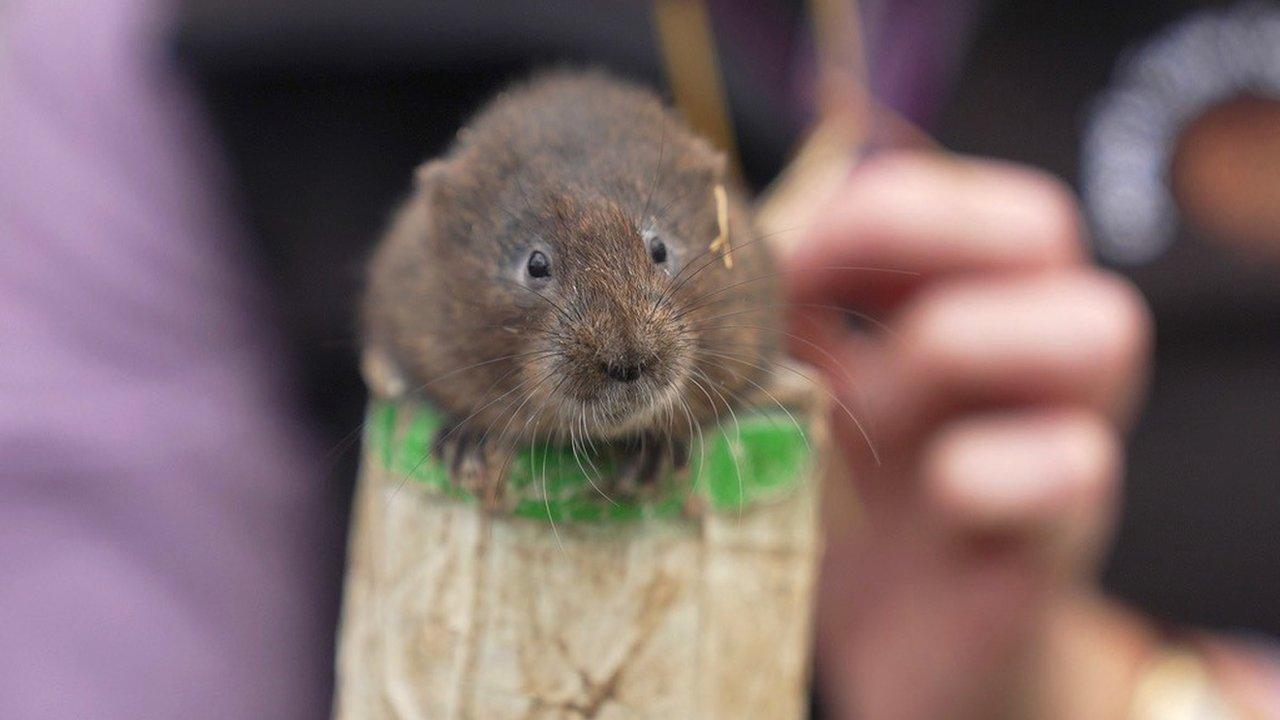
- Published9 July 2023
